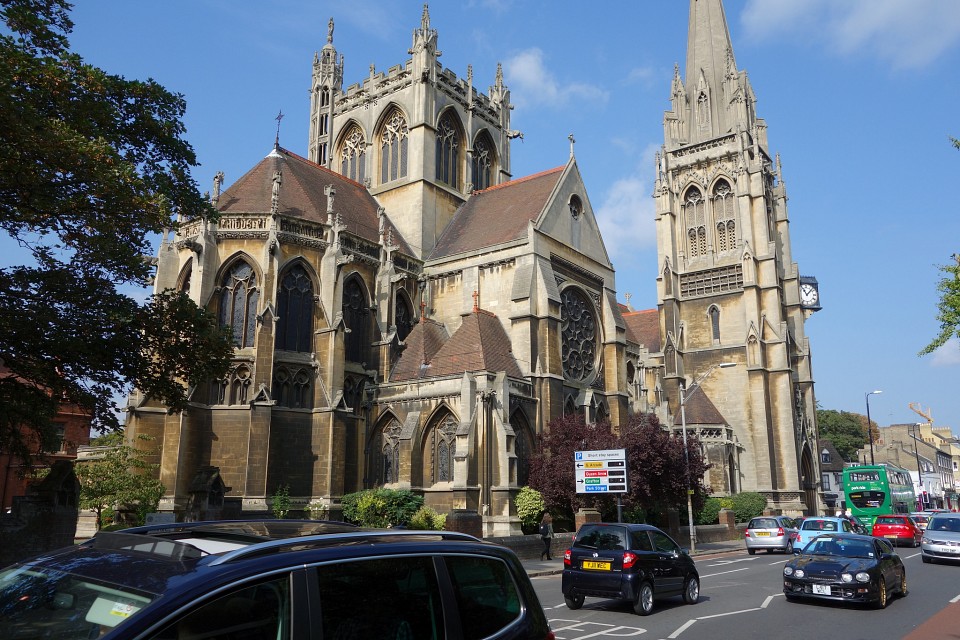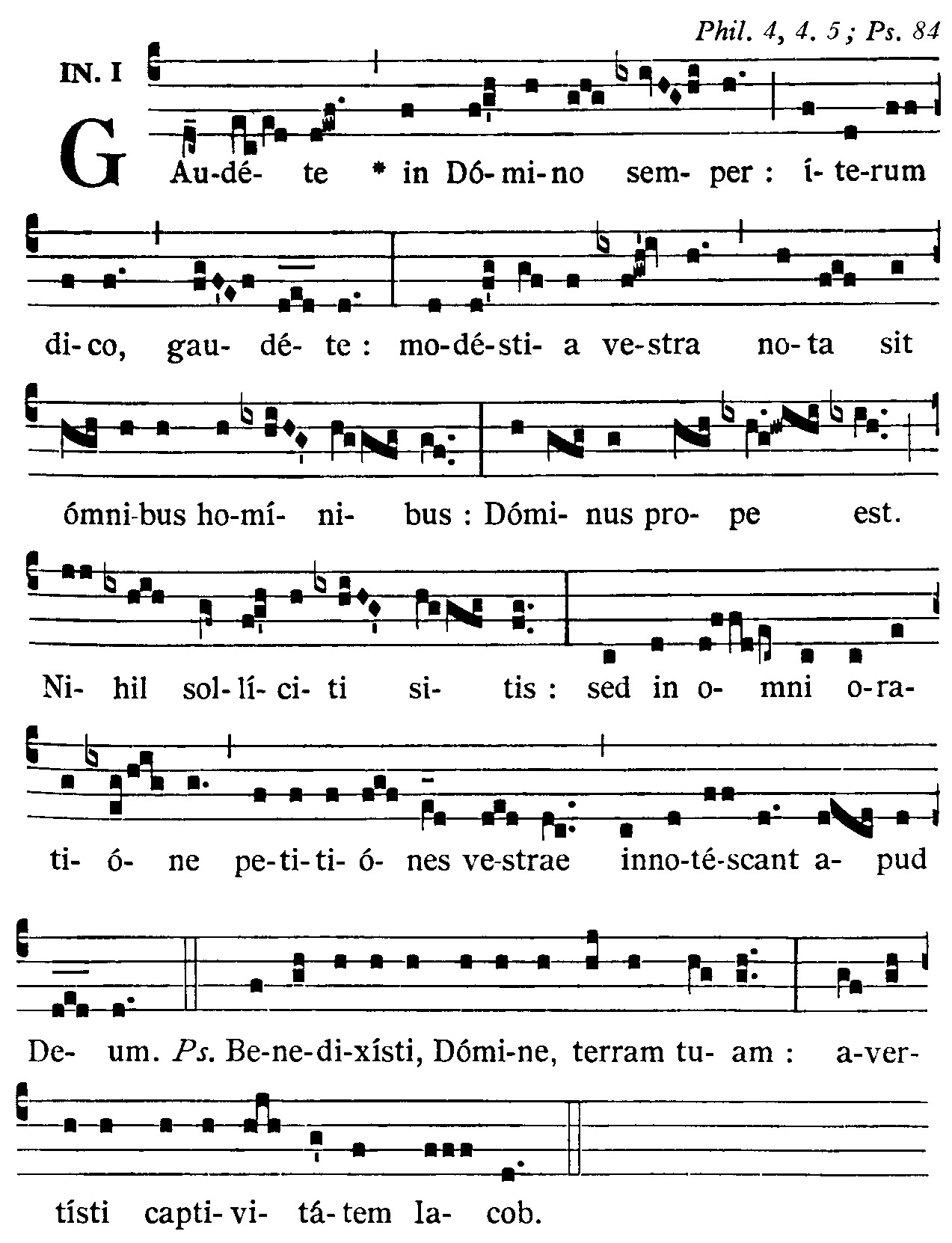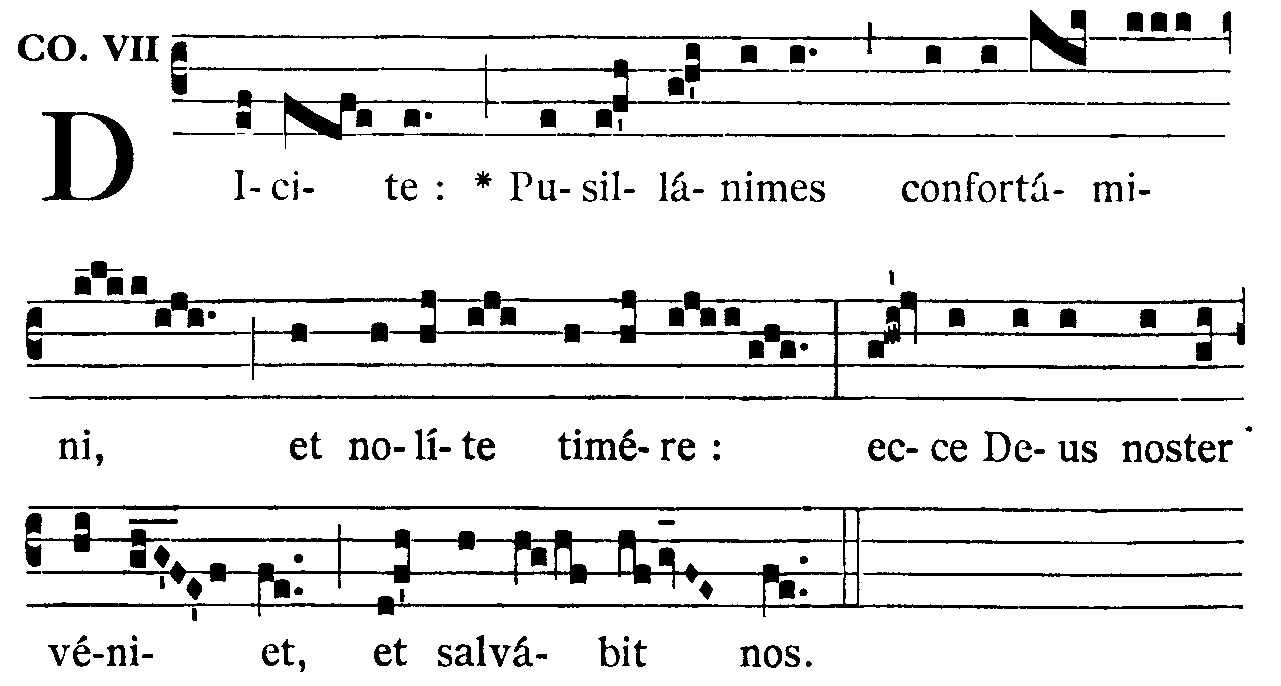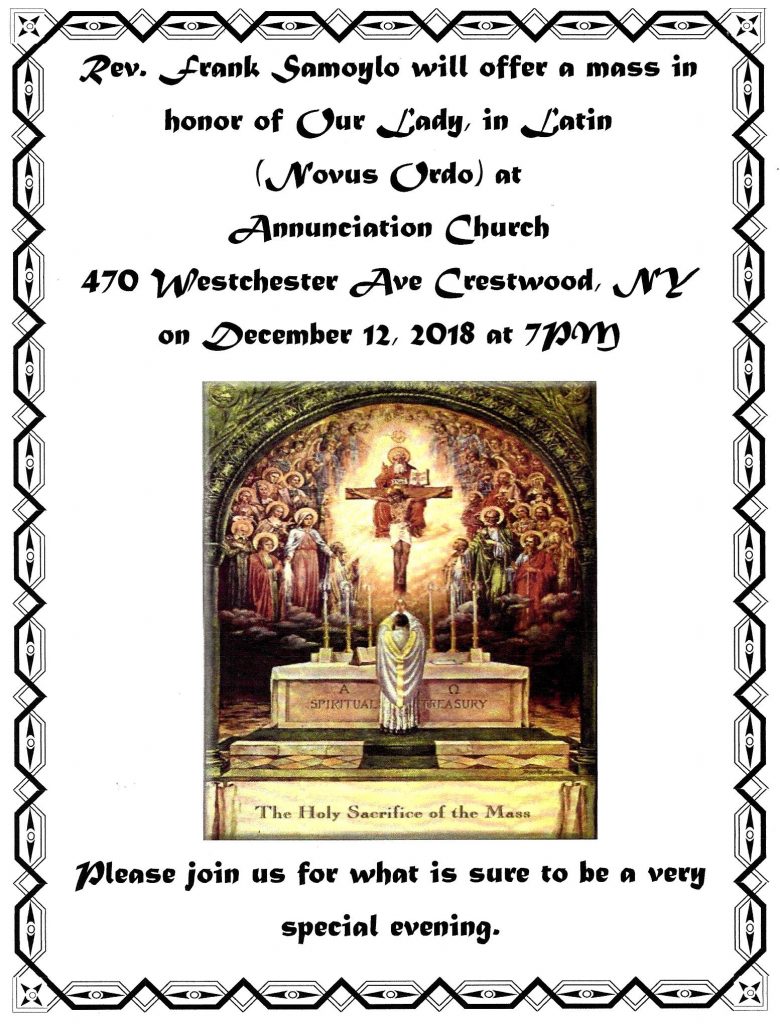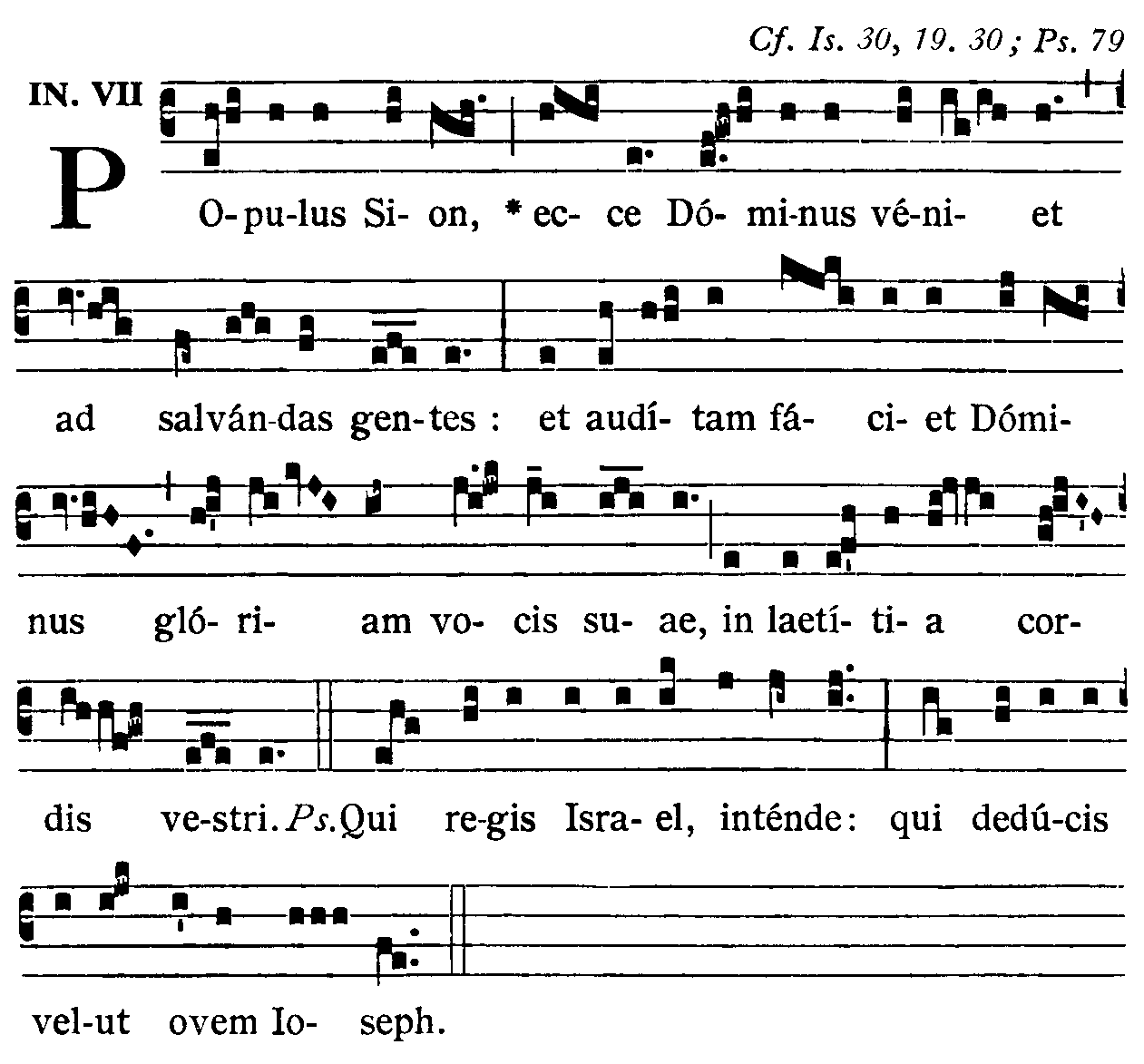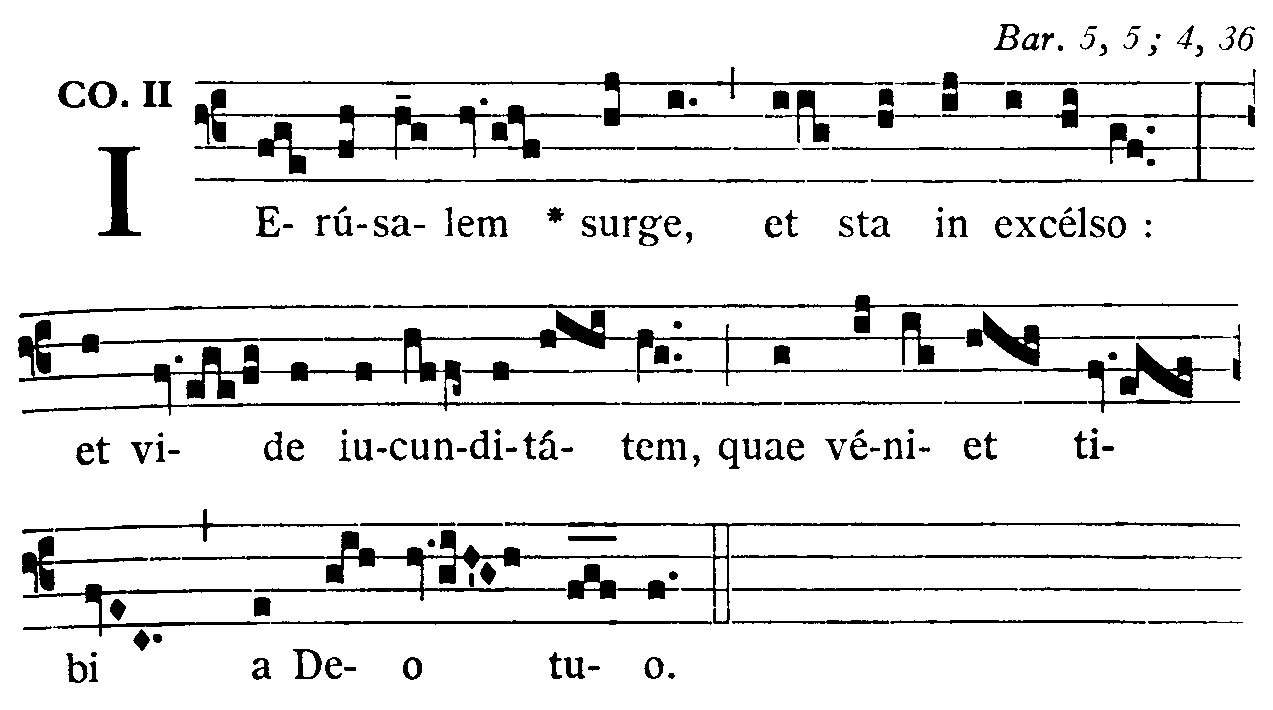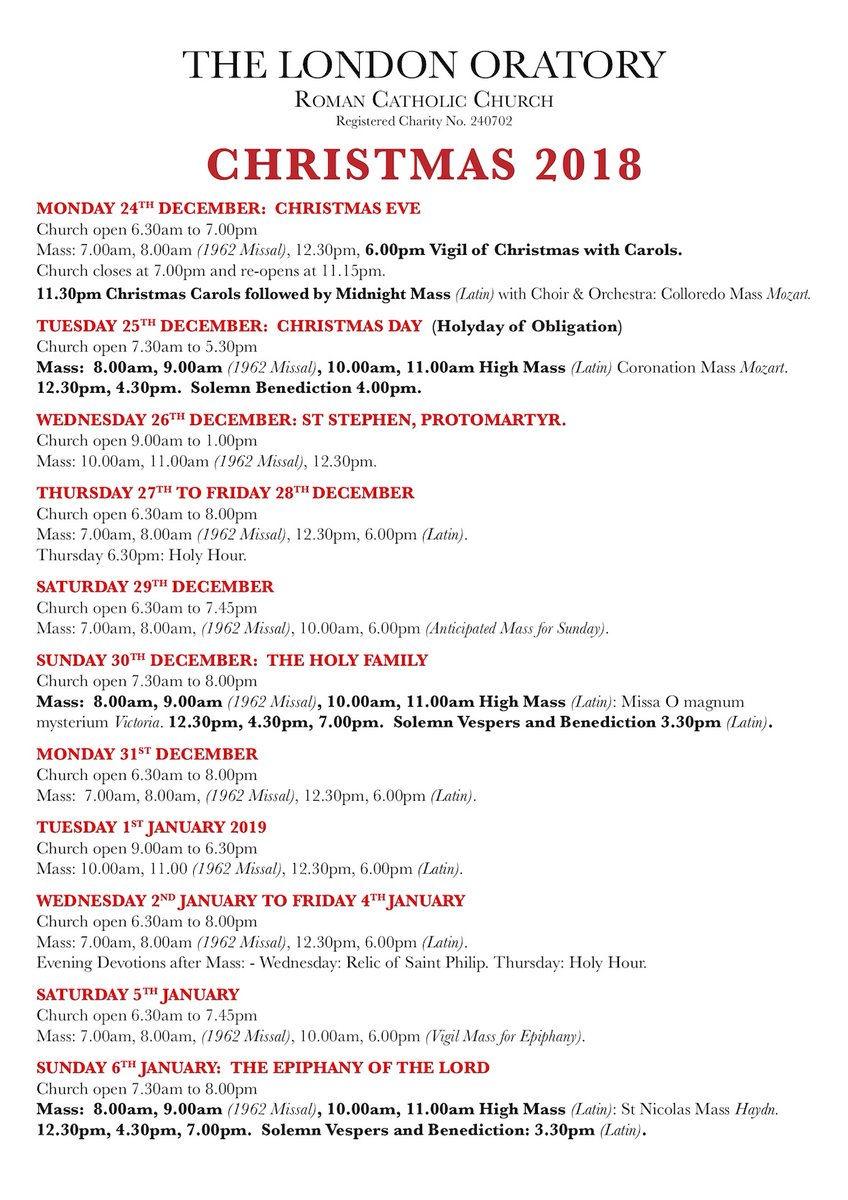§1. Iuxta sæcularem traditionem ritus latini, in Officio divino lingua latina clericis servanda est, facta tamen Ordinario potestate usum versionis vernaculæ ad normam art. 36 confectæ concedendi, singulis pro casibus, iis clericis, quibus usus linguæ latinæ grave impedimentum est quominus Officium debite persolvant.
§2. Monialibus, necnon sodalibus, sive viris non clericis sive mulieribus, Institutorum statuum perfectionis, in Officio divino, etiam in choro celebrando, concedi potest a Superiore competente ut lingua vernacula utantur, dummodo versio approbata sit.
§3. Quivis clericus Officio divino adstrictus, si Officium divinum una cum cœtu fidelium, vel cum iis qui sub § 2 recensentur, lingua vernacula celebrat, suæ obligationi satisfacit, dummodo textus versionis sit approbatus.
Sacrosanctum Concilium, 101
La lingua dell’ufficio divino
§1. Secondo la secolare tradizione del rito latino, per i chierici sia conservata nell’ufficio divino la lingua latina. L’ordinario tuttavia potrà concedere l’uso della versione in lingua nazionale, composta a norma dell’art. 36, in casi singoli, a quei chierici per i quali l’uso della lingua latina costituisce un grave impedimento alla recita dell’ufficio nel modo dovuto.
§2. Alle monache e ai membri degli istituti di perfezione, sia uomini non chierici che donne, il superiore competente può concedere l’uso della lingua nazionale nell’ufficio divino, anche celebrato in coro, purché la versione sia approvata.
§3. Ogni chierico obbligato all’ufficio divino, che lo recita in lingua nazionale con i fedeli o con quelle persone ricordate al 2, soddisfa al suo obbligo, purché il testo della versione sia approvato.
Sacrosanctum Concilium, 101
§1. In accordance with the centuries-old tradition of the Latin rite, the Latin language is to be retained by clerics in the divine office. But in individual cases the ordinary has the power of granting the use of a vernacular translation to those clerics for whom the use of Latin constitutes a grave obstacle to their praying the office properly. The vernacular version, however, must be one that is drawn up according to the provision of Art. 36.
§2. The competent superior has the power to grant the use of the vernacular in the celebration of the divine office, even in choir, to nuns and to members of institutes dedicated to acquiring perfection, both men who are not clerics and women. The version, however, must be one that is approved.
§3. Any cleric bound to the divine office fulfills his obligation if he prays the office in the vernacular together with a group of the faithful or with those mentioned in 52 above provided that the text of the translation is approved.
Sacrosanctum Concilium, 101
§1. Gemäß jahrhundertealter Überlieferung des lateinischen Ritus sollen die Kleriker beim Stundengebet die lateinische Sprache beibehalten. Jedoch ist der Ordinarius ermächtigt, in einzelnen Fällen jenen Klerikern, für die der Gebrauch der lateinischen Sprache ein ernstes Hindernis für den rechten Vollzug des Stundengebetes bedeutet, die Benützung einer nach Maßgabe von Art. 36 geschaffenen muttersprachlichen Übersetzung zu gestatten.
§2. Der zuständige Obere kann den Chorfrauen sowie den Mitgliedern der Orden und ordensähnlichen Gemeinschaften aller Art, seien es Männer, die nicht Kleriker sind, seien es Frauen, gestatten, daß sie für das Stundengebet auch im Chor die Muttersprache benutzen können, sofern die Übersetzung approbiert ist.
§3. Jeder zum Stundengebet verpflichtete Kleriker, der zusammen mit einer Gruppe von Gläubigen oder mit den in § 2 Genannten das Stundengebet in der Muttersprache feiert, erfüllt seine Pflicht, sofern der Text der Übertragung approbiert ist.
Sacrosanctum Concilium, 101
Uso del latín o de la lengua vernácula
§1. De acuerdo con la tradición secular del rito latino, en el Oficio divino se ha de conservar para los clérigos la lengua latina. Sin embargo, para aquellos clérigos a quienes el uso del latín significa un grave obstáculo en el rezo digno del Oficio, el ordinario puede conceder en cada caso particular el uso de una traducción vernácula según la norma del artículo 36.
§2. El superior competente puede conceder a las monjas y también a los miembros, varones no clérigos o mujeres, de los Institutos de estado de perfección, el uso de la lengua vernácula en el Oficio divino, aun para la recitación coral, con tal que la versión esté aprobada.
§3. Cualquier clérigo que, obligado al Oficio divino, lo celebra en lengua vernácula con un grupo de fieles o con aquellos a quienes se refiere el § 2, satisface su obligación siempre que la traducción esté aprobada.
Sacrosanctum Concilium, 101
Langue
§1. Selon la tradition séculaire du rite latin dans l’office divin, les clercs doivent garder la langue latine; toutefois, pouvoir est donné à l’Ordinaire de concéder l’emploi d’une traduction en langue du pays, composée conformément à l’article 36, pour des cas individuels, aux clercs chez qui l’emploi de la langue latine est un empêchement grave à acquitter l’office divin comme il faut.
§2. Quant aux moniales et aux membres, hommes non clercs ou femmes, des instituts des états de perfection, le supérieur compétent peut leur accorder d’employer la langue du pays dans l’office divin, même pour la célébration chorale, pourvu que la traduction soit approuvée.
§3. Tout clerc astreint à l’office divin, s’il célèbre celui-ci dans la langue du pays, avec un groupe de fidèles ou avec ceux qui sont énumérés au §2, satisfait à son obligation du moment que le texte de la traduction est approuvé.
Sacrosanctum Concilium, 101
Língua
§1. Conforme à tradição secular do rito latino, a língua a usar no Ofício divino é o latim. O Ordinário poderá, contudo, conceder, em casos particulares, aos clérigos para quem o uso da língua latina for um impedimento grave para devidamente recitarem o Ofício, a faculdade de usarem uma tradução em vernáculo, composta segundo a norma do art. 36.
§2. O Superior competente pode conceder às Monjas, como também aos membros dos Institutos de perfeição, não clérigos ou mulheres, o uso do vernáculo no Ofício divino, mesmo na celebração coral, desde que a versão seja aprovada.
§3. Cumprem a sua obrigação de rezar o Ofício divino os clérigos que o recitem em vernáculo com a assembleia dos fiéis ou com aqueles a que se refere o § 2, desde que a tradução seja aprovada.
Sacrosanctum Concilium, 101
日課的語言
一、按照拉丁禮多世紀的傳統,為聖職人員仍應保存拉丁文日課,但為那 些不能用拉丁文妥善履行日課的聖職人員,當權人可以在個別情形下,准予使用按第 節的規定,所作的本地語言的譯文。
二、主管上司可以准許,隱修會修女、其他修會的非聖職人員的會土或修女,在履行日課時,甚至在誦經團內,使用本地語言,只要譯文是經過批准的。
三、任何有責任念日課的聖職人貝,如果同信友會聚一起,或同上文第二項的 人士一起,用本地語言舉行日課,已經算是完成自己的任務,只要譯文是經過批准 的。
Sacrosanctum Concilium, 101
§1. Zgodnie z wiekową tradycją obrządku łacińskiego duchowni winni zachowywać w liturgii godzin język łaciński. Tym jednak duchownym, którym język łaciński stwarza poważną przeszkodę do należytego sprawowania liturgii godzin, ordynariusz może w poszczególnych przypadkach zezwolić na używanie przekładu na język ojczysty, sporządzonego według art. 36.
§2. Kompetentny przełożony może pozwolić na używanie języka ojczystego w liturgii godzin, nawet celebrowanej w chórze, mniszkom i członkom zrzeszeń dążących do doskonałości, tak mężczyznom, którzy nie są duchownymi, jak i kobietom, pod warunkiem, że posługują się zatwierdzonym przekładem.
§3. Każdy duchowny zobowiązany do liturgii godzin, jeśli celebruje ją w języku ojczystym z grupą wiernych albo z tymi, o których była mowa w §2, wypełnia swój obowiązek, byleby tekst przekładu był zatwierdzony.
Sacrosanctum Concilium, 101

